“Mature love is loving, not being loved,” said celebrated American psychotherapist and writer Irvin D. Yalom. What he probably meant was maturity in relationships is gauged by how much you can love your partner by accepting their flaws and working on your own shortcomings. A mature relationship is more about loving your partner regardless of the minor issues and focusing on a better future together. You see, all relationships pass through various stages. First comes the honeymoon phase of giddy love. This is followed by the power struggle stage, where couples face conflicts and learn ways to resolve them. Couples who overcome these obstacles eventually reach the next stages of stability, commitment, and bliss. And some experts have rightly clubbed the last three stages as the mature relationship stage.
It is clear that maturity in relationships is an eventual outcome of passing through the various stages of a relationship successfully. The secret lies in the ability to communicate effectively, avoiding unrealistic expectations while being respectful to your partner, and valuing your relationship.
With the help of our expert, psychologist and leadership coach Pragati Sureka (MA in Clinical Psychology, with professional credits from Harvard Medical School), who specializes in addressing issues like anger management, parenting issues, and abusive and loveless marriage, through emotional ability resources, we will delve deeper into the intricacies of mature or grown-up relationships. We will also discuss a few ways in which one can learn how to be emotionally mature in a relationship. So, let’s begin.
What is A Mature Love Relationship?
Table of Contents
So, what does a mature relationship look like? Well, maturity in relationship doesn’t probably have a set definition. Pragati explains, “Mature or grown-up relationships are the ones where there is a sense of emotional well-being. And where you feel that the cumulative positives in your relationship are more than the cumulative negatives.”
In his book, The Seven Principles for Making Marriage Work – A Practical Guide, relationship expert Dr. John Gottman calls a mature married relationship an emotionally intelligent marriage. He too talks about the cumulative positive concept in terms of “positive sentiment override.” He says that in a stable marriage, “the positive thoughts about each other and the marriage are so pervasive that they tend to supersede their negative feelings.”
Pragati says, “People in mature relationships have learned to value direct communication, active listening, mutual respect, and commitment, along with empathy, accountability, a mindset of making amends, and a harmony of thoughts and actions.” Clubbing all these under the term ‘emotional maturity’, she adds that emotionally mature people know how to control their inner selves, and can in turn, control their behavior and response in a relationship.
Why Is It Important to Have A Mature Relationship?
Interpersonal interactions are based on our subjective thoughts, feelings, and emotions. And how we handle our emotions often plays a major role in how long our relationships last. While speaking of the importance of maturity in a relationship, it’s crucial to mention that emotional maturity helps us deal positively with the issues and conflicts that may crop up in our day-to-day lives.
This is even more relevant in the case of romantic relationships. You see, romantic relationships are special because they lead to some level of vulnerability. This also means we are prone to respond intensely to various situations in a relationship. For example, your significant partner can either make you feel an intense high of acceptance, love, and respect. On the other hand, a scornful rejection from them can push you into a chasm of debilitating self-esteem issues.
This is why maturity in love is so important. Let us look at some of its benefits.
- It strengthens the foundation of the relationship: Pragati says, “Maturity in a relationship works as a prerequisite for an emotionally stable marriage or a committed long-term relationship.” What she means is maturity helps couples work on their flaws and focus on life goals together, without letting emotional vulnerability take over
- It offers easy conflict resolution: With maturity, partners can effectively and effortlessly resolve conflicts as they come, while prioritizing the health of the relationship and their individual mental health. Pragati says, “If the glue of emotional maturity is present, it becomes easier to work on the relationship.” People can be mature and move on than spend their days bickering over trivial matters
- It allows space for personal growth: People in mature relationships have the mental bandwidth to focus on personal growth. Mature partners provide encouragement and emotional support to one another
- It generates happiness and security: A mature person will feel more secure in a relationship. Their stable bonds with their partner will lead to a sense of happiness, contentment, and joie de vivre
Related Reading: 9 Expert Tips To Grow In A Relationship Every Day
15 Signs You Are In A Mature Relationship
Emotional maturity is an outlook or an attitude toward looking at life, love, and relationships. It is a way of thinking. But how does it manifest in the form of behaviors and outcomes? A relationship with two emotionally mature individuals will show recognizable mature relationship signs. Here are a few markers of a mature relationship that you may need to look out for:
1. You feel understood
Pragati says, “In a mature relationship you feel seen and understood. You have a presence in that space.” What she means is a mature relationship fosters a feeling of being valued and respected, or the feeling of being understood: the feeling that someone just ‘gets you’ and realizes your worth.
Everything in a mature relationship is about a broad feeling of emotional well-being. Mature people, equipped with effective and sincere communication, active listening, and the will to prioritize the relationship over personal wins, are able to create an environment where each partner ultimately feels like they belong and their presence matters. So, in such connections, you won’t be judged or feel threatened when you speak of sensitive topics, such as a former lover or embarrassing situations from the past.
2. You feel heard
One of the best markers of a mature relationship is feeling heard by your partner. Pragati says, “Knowing that you are being heard feels like someone is actively listening to you. And body language plays a major role in making someone feel heard.” For example:
- If you’re a mature woman in a relationship, you will keep your favorite TV show aside or stop texting when your partner talks to you
- Likewise, a mature man wouldn’t leave the room, slam the door shut, or give his partner the silent treatment when they are in the middle of discussing important things or major relationship problems
Making your partner feel heard also means someone cares about your grievances, advice, opinions, and future plans. You know that someone is there to listen to you. Your opinion and feelings matter. Emotionally mature people know they can make their partners feel important if they practice active listening. This eventually leads to a stable relationship.
3. You both celebrate your differences
Partners in emotionally mature relationships do not see differences as reasons to judge each other. This prevents bitterness from creeping into the relationship. Pragati calls this maturity “open-mindedness toward accepting the differences.” Differences should be viewed as ways of adding variety to life and as opportunities to learn new things. For instance:
- A religious partner may be married to an atheist or someone with a neutral attitude toward religion. In either case, each partner should allow the other to practice their beliefs
- A man who likes swimming will talk about a new stroke he learned, while his partner who likes reading novels may share a plot to make a point. Here, both may learn something new they would not have known otherwise
Emotionally mature people, in fact, may go above and beyond and show interest in their partner’s core values and beliefs.
Related Reading: 9 Examples Of Mutual Respect In A Relationship
4. You both compromise easily
Mature relationships depend on the ability to have a fine balance between being assertive and accommodative. Self-love is as important as loving your partner. In fact, being assertive allows you to safeguard your emotional boundaries, whereas accommodating your partner’s needs comes from an underlying emotion of love and respect for your partner.
Pragati says, “Mature people are like bushes, they could sway in the event of a storm, bend a little but otherwise stand erect. They are not stiff like a bamboo shoot. They are willing to be flexible.” This flexibility allows mature people to think beyond the limits of the individual’s ego, and work for the happiness and success of the couple.
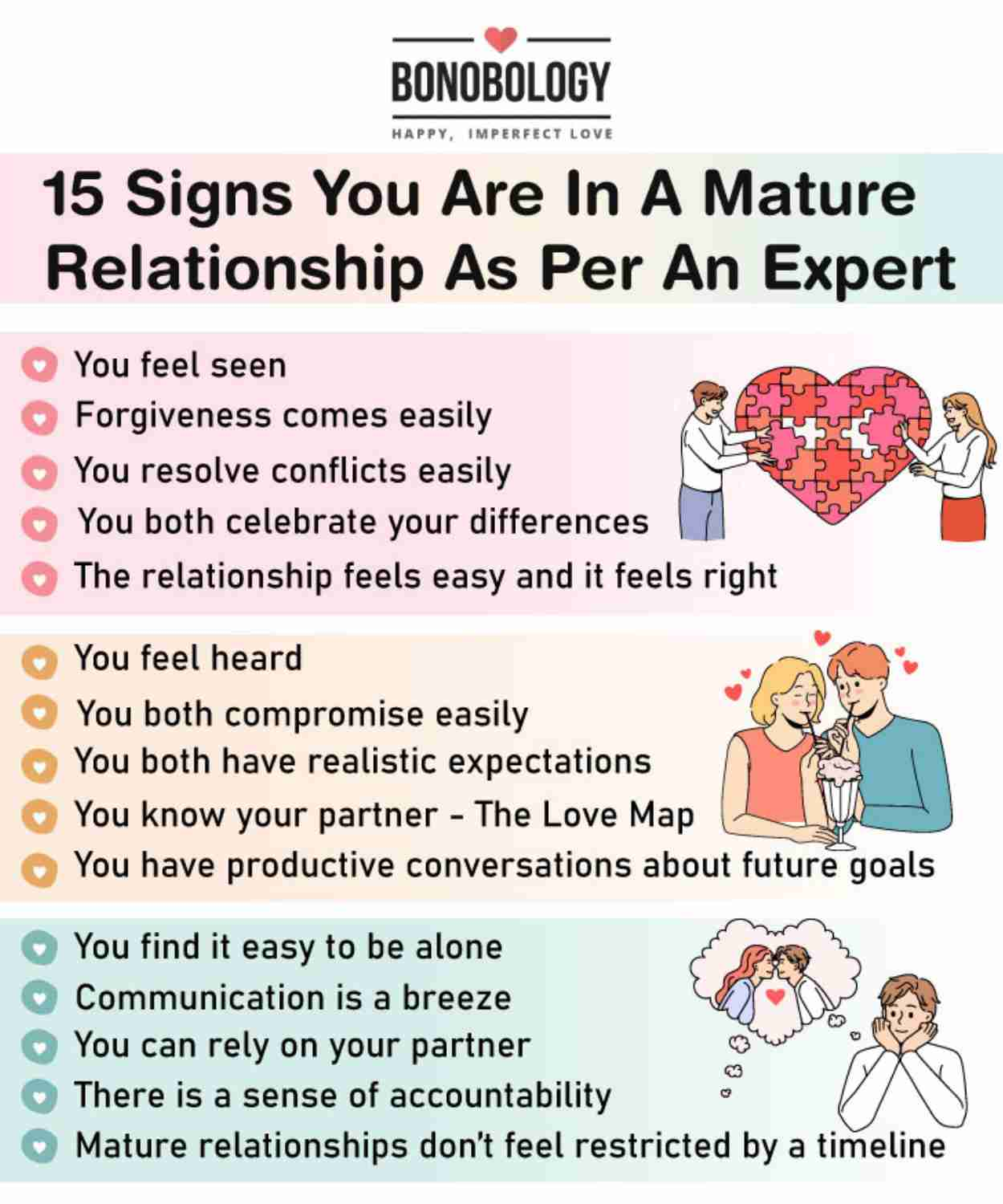
5. You both have realistic expectations
Partners in mature relationships have passed through the romanticist honeymoon stage. They have been there, done that, seen the overtures and hyperboles, and have enjoyed it while it lasted. They have the emotional maturity to see the larger picture. Their expectations of each other are grounded in reality.
Have you come across partners asking their other halves to lose weight to fit unrealistic beauty standards, all the while ignoring their limitations in life? This is clearly an unrealistic expectation. Pragati adds, “Mature people realize they must not idolize each other. They know that all idols have feet of clay. They see each other as real humans with limitations and weaknesses.” For example, a mature man or a mature woman in a relationship does not expect their overworked partner to stay up late for them.
6. You can rely on your partner
Some experts call reliability a basic right in a relationship. A mature relationship gives both partners a sense of security and trust. It makes the relationship consistent. You know you are in an emotionally mature relationship if you can trust your partner to do what they said they would and trust that they have your back.
Reliability can be gauged by tiny observations. Ask yourself these small questions:
- Do both of you keep your word?
- Do you show up on time?
- Do you own up and apologize if you aren’t able to live up to your promises?
These small things add up to build trust in your relationship. Mature people do not waste their time making promises they can’t keep or disrespect each other’s emotions. This is a classic mature relationship vs immature relationship differentiator.
Related Reading: 9 Ways To Fix A Relationship After Trust Is Broken
7. There is a sense of accountability
Taking responsibility in relationships is crucial. Mature people are keen on resolving conflicts. This means that someone has to take responsibility for the bad behavior. In a mature relationship, both partners are quick to take responsibility for their actions. This helps in forgiving and moving on.
This behavior is essential in any stable and healthy relationship. When no one takes responsibility for bad behavior, the repetition of conflict becomes imminent. Resentment builds up. A long list of resentments then may tilt the balance toward an overwhelming negative sentiment.
8. Forgiveness comes easily
Mature people find it easy to forgive. They have no scores to settle with their partner. Their future relationship goals are far more important than any personal win.
This positive sentiment override makes it easy for them to let go of resentments in the relationship, if any, and move on. There may be short conflicts, which are often resolved through sincere apologies and heartfelt forgiveness. So, if you and your partner forgive each other readily, it is most definitely a sign of a mature relationship.
Related Reading: 9 Emotional Effects Of Stonewalling On Your Relationship
9. Communication is a breeze
With trust in each other, good communication feels natural to a mature couple. There are several ways a couple can communicate maturely. And for a communication to be mature, it should be:
Responsible: Pragati says, “Mature people do not snap at their partners very easily or communicate in a disrespectful way. They also do not dump their emotions on their partner.” In short, mature people know the subtle differences between venting and
emotional dumping in the name of sharing.
Direct: Mature couples do not communicate through their children or other family members. Pragati says, “Immature couples fall apart because they look for flying monkeys to do their dirty work, or third parties to take their sides or prove that they were right. Mature couples don’t”
Fearless: Mature people have nurtured a safe space for communication, while immature ones induce fear in their partners. If one partner has something to share, there is a trust that the other partner will not be upset or judgmental in their response. If the other partner is unable to comprehend their partner’s emotions, they will express that clearly. Emotions like annoyance or dismissal are a refuge that people take when they find themselves unequipped to communicate their true response.

10. You resolve conflicts easily
Relationships go beyond finding common ground, such as shared interests and shared hobbies. After all no two people are alike and there are bound to be differences. And everything we have discussed till now makes it clear that the resolution of conflicts must come easily to an emotionally mature couple. But how? Well, here’s how maturity in relationship helps resolve conflicts:
- Mature partners make sure they do not waste time beating around the bush and are direct with their significant others. What this means is that issues are addressed head- on and dealt with as they come
- They keep all channels of communication open even if they disagree or have passionate fights
- There is more focus on resolving conflicts in a healthy way
- Since there is little or no build-up of resentment, a new conflict doesn’t open a ‘Pandora’s box’ of older issues, pushing you down the rabbit hole of accusations and blame-shifting, until you lose track of what the immediate conflict was about. In an emotionally mature relationship, arguments don’t go astray
- At the end of an argument, you feel good, as there is a feeling of the satisfaction of being heard and understood by the other partner
- In such relationships, you are more likely to have difficult conversations and then be mature and move on, instead of continuing with useless and trivial arguments or holding grudges
11. You find it easy to be alone
…And to let your partner be alone too. Pragati says, “In mature relationships, partners respect boundaries. They value each other’s time and space.” This is not possible without trust in your relationship and a sense of self-love and respect for your own passions and interests.
When two people are mature, they see themselves as interdependent and not codependent. A healthy dependency on your partner is needed to come together in meaningful ways, while always acknowledging and nurturing one’s individual identity and existence. Such people do not use the relationship to fix broken parts of themselves. That is why, if you are in a mature relationship, you value your ‘me-time’ and your individual identity.
Related Reading: 5 Reasons Why Space In A Relationship Is Not An Ominous Sign
12. You know your partner – The Love Map
Dr. John Gottman came up with the term ‘The Love Map’ to explain what it’s like to ‘know’ one’s partner. According to him, people in emotionally intelligent marriages really ‘know’ their partners. They have “dedicated cognitive room for their marriage.” They know what is important to them, what is happening in their lives currently, what are their major worries these days, and where they stand with regard to important issues and similar things.
‘The Love Map,’ according to Dr. Gottman, is “that part of your brain where you store all the relevant information about your partner’s life.” People in mature relationships have spent so much time talking to each other, sharing their thoughts, and conversing, that they “remember the major events in each other’s history, and they keep updating their information as the facts and feelings of their spouse’s world change.” A mature relationship, in other words, is a mature friendship, where your partner can fill in the empty spaces between what you say and what you don’t.
13. You have productive conversations about future goals
Pragati says, “Mature relationships are marked by the sharing of goals, dreams, and aspirations. This leads to each partner feeling invested in the dreams of the other and getting some clarity about the road ahead.”
Sharing goals also gives each person the motivation to support the other person. Your partner’s struggle feels like your own struggle and their victory, your victory. It allows both people to be on the same page and feel like they have a witness and a cheerleader for life. Needless to say, many other aspects, such as financial planning, become more effective. Sharing goals allows you to combine forces and have an easier crack at the goal.
14. Mature relationships don’t feel restricted by a timeline
Mature people aren’t rigid. Here are some traits they have:
- They trust themselves, their instincts, and their judgment
- They do not feel restricted by a preconceived idea or a rigid timeline
- They allow things to happen naturally
- They allow things to unfold and depend on can read emotions to gauge what feels right and what doesn’t
On the contrary, emotionally immature people frequently ignore relationship red flags. There have been many cases of people getting married even when things didn’t work out for them, just because they were forced to follow a formulaic timeline (from the first date to moving in together to getting married, having a child, and so on). This is yet another mature relationship vs immature differentiator.
Related Reading: Love Takes It’s Time To Develop
15. It feels easy and right
Emotionally mature relationships are not impassioned tales filled with drama. There is no anxiety-inducing fight followed by a heart-wrenching patch-up. Mature relationships are essentially drama-free and easy. This doesn’t mean that they don’t require work. But the work does not feel tedious. In fact, the work mature couples put in for the betterment of the relationship feels natural and gives them joy. Spending quality time together isn’t a task but comes naturally.
Such relationships also feel right. Like they are worth one’s time, effort, and attention. People in mature relationships feel supported by their husband, wife, or partner. Mature relationships help both partners accomplish what is called in ‘Maslow’s Hierarchy of Needs’ as ‘self- actualization’, the fulfillment of one’s truest and highest potential, whatever that may be. Such connections go beyond physical intimacy or material benefits.

5 Ways To Be More Mature In Your Relationship
Thus, we understand how emotional maturity can improve a relationship, and what the lack of it can reduce it to. If your relationship shows most of these mature relationship signs, you are very lucky to have been gifted with this emotional capacity. You are also blessed to have found a partner who can match up to your level.
However, if you think your relationship lacks these major signs of maturity, it is advisable to up your game. The good news is that experts believe it is completely possible to nurture and develop one’s emotional capacity and learn how to be emotionally mature in a relationship. Here are a few mature relationship tips to raise your emotional capacity:
1. Identify your emotions and label them
Emotions work as a feedback system to gauge the negativity or positivity of a situation. It’s a language through which your intuition speaks. Emotionally mature people are well acquainted with that language. They understand the emotions that surface because they recognize them.
Try to be aware of the emotions that you feel. Notice them closely. Ask yourself all those small questions that have been bothering you, such as, “Why do I feel this way?” This will help you in recognizing various emotions and labeling them. For example, do you always feel irritable and cranky? Maybe you are in an emotionally draining relationship. Remember, when you understand something, it becomes easier to tame. Feeling comfortable talking about these emotions also makes you a good communicator in such cases. Here’s a step-by- step example:
- Situation: Getting angry and showing it in response to your partner unintentionally cutting you off in public
- Emotional observation: Asking yourself, “Why did this make me angry?” This anger probably comes from feeling disrespected. The feeling of disrespect further stems from embarrassment. This embarrassment is probably a result of a lack of confidence
- Outcome: Think to yourself: “I must rebuild my confidence. I must ask my partner to not alienate me publicly. I need their support while I build my confidence back.”
2. Practice self-care
The advantages of self-care are manifold, and it can take various forms. Self-care also helps you connect with your partner in a more mature way. Because you can understand someone else only if you understand and value yourself. Here are some ways which can help you achieve that:
- Journaling: Just a few hours of journaling can help you acquaint oneself with your emotions. Pragati says, “One can use journaling to document how one feels. This will help build emotional vocabulary.”
- Pursuing hobbies: Taking up personal hobbies is a great self-care activity. Pragati says, “This is so that you don’t get resentful of the partner and your life doesn’t revolve around the other person. This also prevents you from completely victimizing yourself and blaming the partner for not paying attention to you or fixing you.”
- Traveling: Go out on solo trips for a day or two and detach from the relationship. This helps you reflect on your journey and the relationship with your partner. Spend quality time with yourself. This, in turn, will help you connect with your partner.
Related Reading: How To Emotionally Detach Yourself From Someone – 10 Ways
3. Practice mindfulness
Astute awareness is one of the foundations of any personal development. Live your life in awareness. Since you wish to develop emotional maturity, be wary of your responses. Watch out for negative behaviors that lead to immature relationships. Pragati feels, “Contempt and criticism are two self sabotaging behaviors which manifest in the form of name-calling. Do not allow complaints to take the form of contempt.” Here are 2 instances:
- Complaint: Why did you not throw the garbage?, Contempt: You are lazy, and you never do anything
- Complaint: I can’t believe you lied to me. You shouldn’t have. I am hurt, Contempt: You are a liar. You are manipulative and selfish
This awareness is possible when you take personal responsibility for your behavior. If you find yourself indulging in detrimental or immature behavior, take responsibility for it, apologize, correct it, and move on while avoiding repeating it in future.

4. Accept your partner for who they are
Part of taking personal responsibility involves letting the other person be. Accepting your partner for who they are is a straightforward step you can take. It may be difficult, but there isn’t a lot of mental gymnastics here. This step allows for freedom in relationships.
All this step needs is your sincerest commitment to this decision. Learn to say, “I accept my partner for who they are.”
Related Reading: 7 Expert Tips To Help You Accept Your Partner’s Past
5. Consult a professional counselor
Emotional maturity is a skill that’s influenced by how we were raised as children. As adults, we need to take it upon ourselves to address the flaws in our emotional maturity quotient. This may involve a lot of unraveling of deep emotions and unlearning and relearning. Professional guidance from a licensed counselor, relationship coach, or couples therapist can be of immense value to guide you through the process in such cases. Remember, it’s always good to get help if you see tiny cracks in your relationship, as these little issues may eventually turn out to be big issues.
If you find yourself struggling with more than you can handle when trying to build your emotional capacity or if these steps seem to overwhelm you, it may help to seek professional guidance from Bonobology’s panel of experienced counselors.
Key Pointers
- Mature relationships offer a sense of emotional well-being
- You will feel more secure in a relationship if it has the element of maturity
- The importance of maturity in a relationship can be gauged from the fact that it forms a base for a long-term and emotionally stable relationship
- People in mature relationships have learned to value direct communication, active listening, respect, commitment, empathy, and accountability
- To be more mature in your relationship, you must learn to identify your emotions and practice mindfulness
- If you find yourself struggling to get to the root of your feelings, you may seek professional help, spend time with yourself to introspect, and identify your emotions
We hope these expert tips have made you recognize the level of maturity in your relationship. Do they make you proud of how well you are doing? Touch wood! Do they point out a few shortcomings that you could take care of? Or they red-flags pointing to you the glaring inadequacies in your relationship? Either way, we hope that this introspection has been of value.
Remember, a happy and healthy relationship is nothing but a mature friendship, wherein both partners are not only aware of each other’s shortcomings, but are also willing to adjust, communicate, and compromise. In such relationships, a partner is ready to accept you for who you are and is open to resolving conflicts. Your future goals are more important than your individual egos. This is why a mature relationship lives longer. Making a relationship work isn’t rocket science when both partners are mature. Maturity in love creates a wholesome connection and a bond that enriches both you and your partner.
10 Things To Do If You Are Feeling Unappreciated In Your Relationship
Your contribution does not constitute a charitable donation. It will allow Bonobology to continue bringing you new and up-to-date information in our pursuit of helping anyone in the world to learn how to do anything.




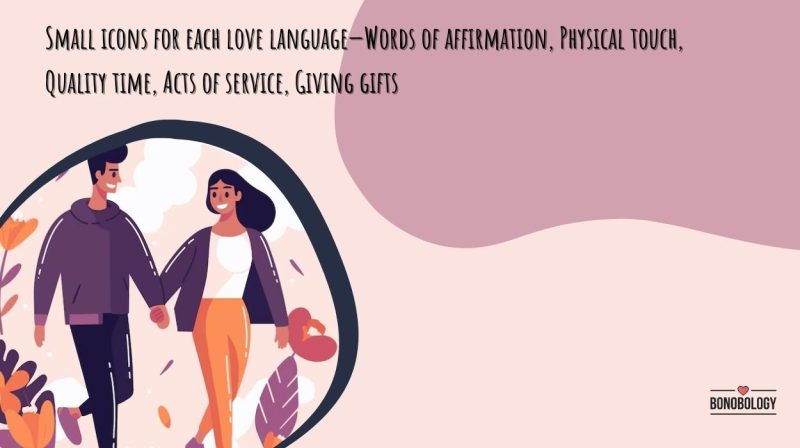



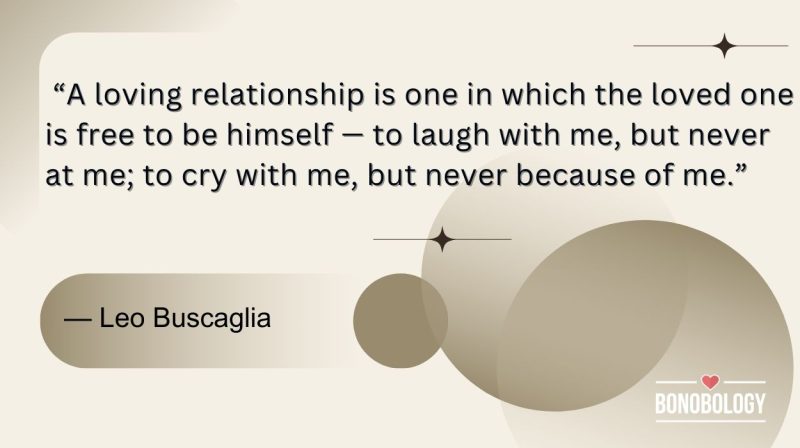

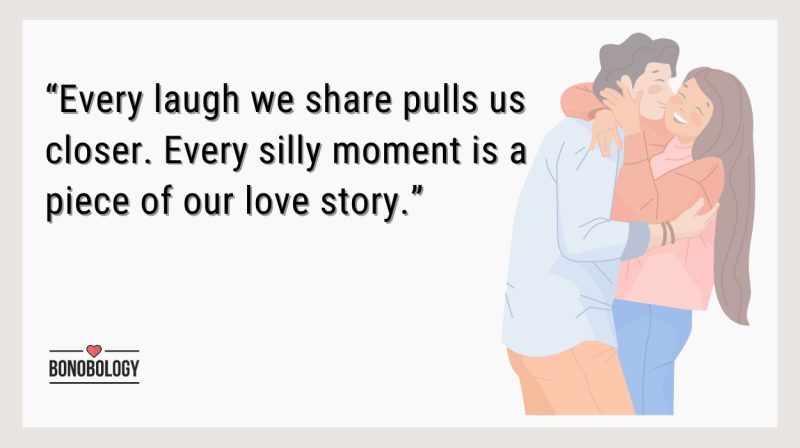





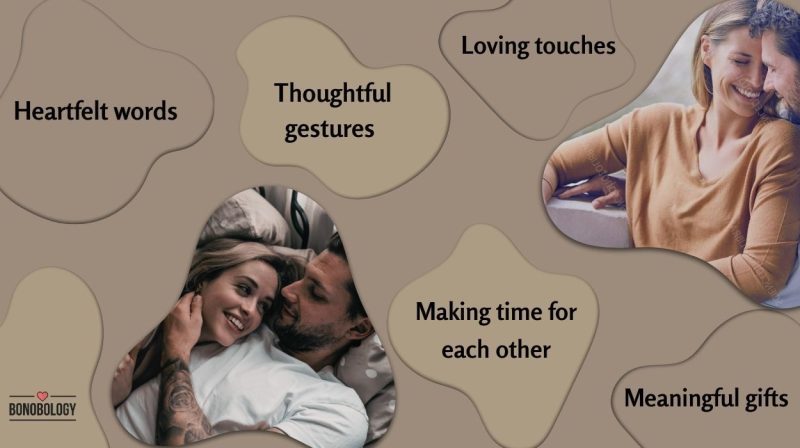

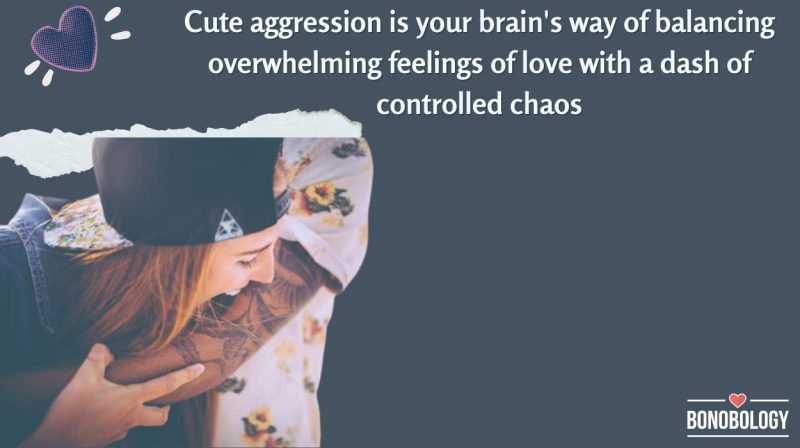




Featured
How To Build Trust In A Relationship: Effective Strategies For A Lasting Bond
How To Find Your Love Language: Discover What Makes You Feel Loved
Love Songs For Him: The Ultimate Guide To Expressing Your Heart
What Do Guys Like To Be Called By Their Partners? These 20 Names
25 Signs A Guy Is Attracted To You, According To Dating Experts
What Is A Real Relationship? 13 Defining Characteristics
130 Beautiful Things to Say About Your Wife
101 Silly Questions To Ask Your Partner For Fun, Laughter, And Bonding
200 Heart Touching Love Messages For Her
100 Good Morning Messages to Make Her Fall in Love
100 Good Morning Texts To Make Him Fall In Love
First Love Theory: Is It True Men Never Forget Their First?
Looking For Words To Make Her Trust You? 300 Ideas
What Is Affection In A Relationship And How To Show It
21 Undeniable Signs A Guy Is Claiming You
Why Do I Want To Bite My Boyfriend? The Psychology Behind It
Ungodly Soul Ties Keeping You Stuck? Learn How To Break Them
How To Feel Confident During Your First Sex Experience
200+ Creative Responses To “I Love You”
15 Things to Consider Before Making a Relationship Official